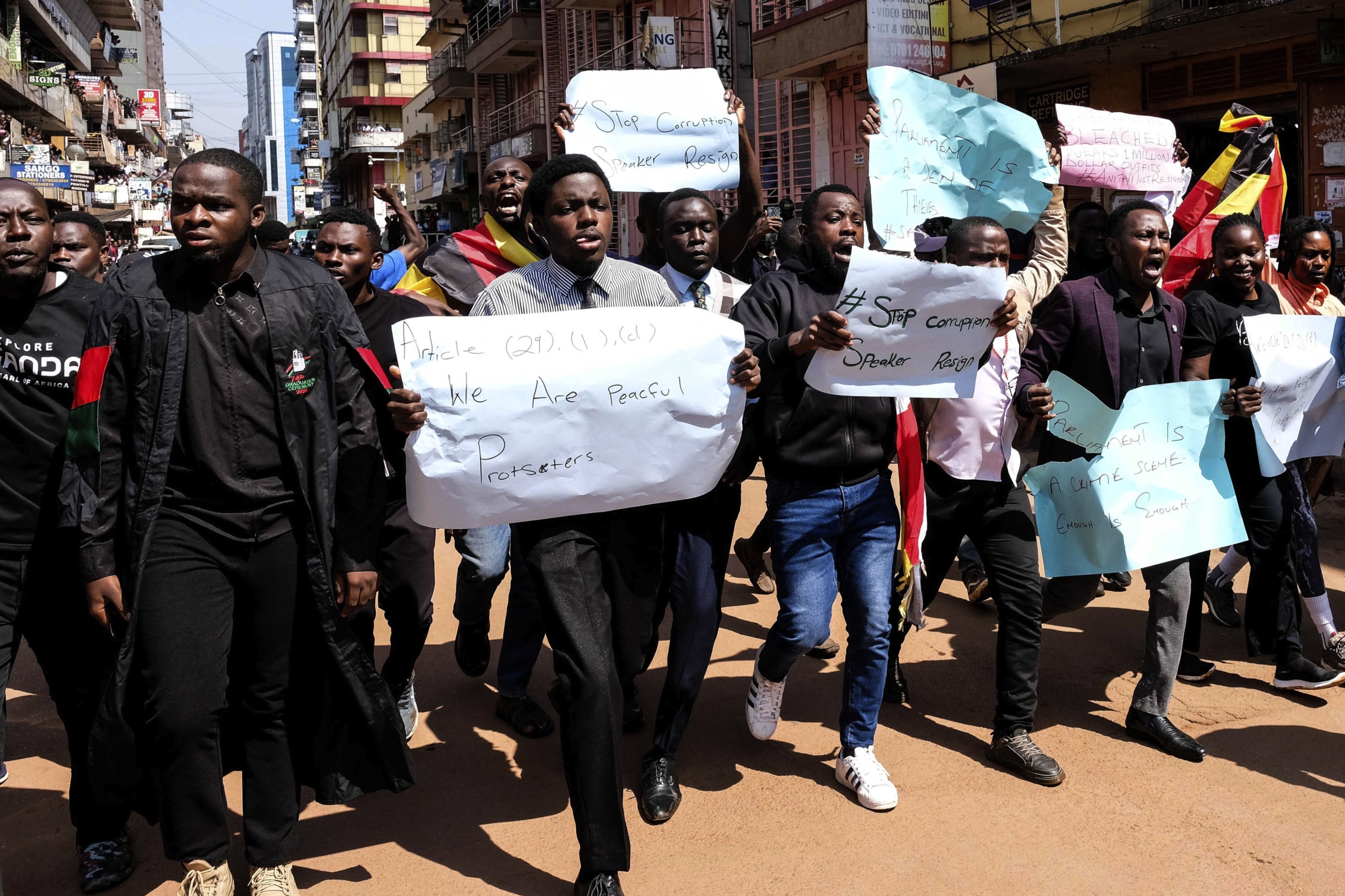Sign up for the daily CJR newsletter.
Earlier this year Agather Atuhaire, founder of the Agora Center for Research, a Ugandan newsroom that lives somewhere between activism and investigative reporting, received a message from the Chieftaincy of Military Intelligence, a unit tasked with gathering information regarding potential threats to Ugandan national security.
The message followed a series of big scoops—allegations of corruption by the Speaker of the Ugandan parliament; a story that went viral about health facilities lacking specialists, equipment, or really any capacity to treat patients; another about roads across Uganda that cost millions but disintegrated shortly after they were laid.
It came via a call to Atuhaire’s sister, and as far as anyone can recall, it said something like: “Tell her we will kill her. We know where she is. We know where she was jogging yesterday. [They were correct.] She should keep quiet like others have kept quiet about corruption in this country. If she cannot stand how corrupt the country is, she should seek asylum in the West. After all, she works with Westerners.” (Atuhaire is a 2024 Time 100 inductee and 2024 US State Department International Woman of Courage recipient.)
Agora appears to be in the crosshairs of an increasingly authoritarian Ugandan government. Yoweri Museveni, the revolutionary turned autocrat who has been in power for the past thirty-eight years, has presided over a slow but steady erosion of checks and balances, the rule of law, and—in particular—a free press.
Before 2010, it was rare for journalists to be arrested. That is no longer the case. And in 2013, when two publications, Daily Monitor and the Red Pepper, revealed a secret succession plan for Museveni’s son to take over for him, they were shuttered. (Daily Monitor has since reopened but is seen to be cowed.)
Before 2016, radio stations could share verified election results in real time. But that year the government shut down first Facebook and eventually the whole internet, during election season. “There’s never any reason given. You just get to know that they don’t want any alternative sources of information apart from those they control,” Atuhaire said.
Agora has been a particularly meddlesome opponent. It shares its reporting in a series of threads or through Spaces discussions on its X account. According to the World Economic Forum, Uganda has one of the youngest populations in the world. According to Atuhaire, they are chronically online and simply don’t read two-thousand-word reports in traditional newspapers. They believe those platforms—due to government pressure—self-censor anyway.
On X, Agora attaches hard evidence—screenshots, copies of financial documents—to back up its claims. It also crowdsources information from its followers. During its investigations into health facilities and roads, for instance, followers were encouraged to send in photos. “We are going to allow everyone to share information,” Atuhaire said.
The newsroom has also developed a knack for bringing its work home to its readers.
In February 2024, when Agora alleged that Anita Among, Speaker of Uganda’s parliament, had funneled state money—9.6 billion Ugandan shillings ($2.61 million)—to the private accounts of her subordinates, Ugandans were outraged. The investigation was picked up by radio stations and newspapers across the country and was even reported in different languages.
In a June 2024 address, Museveni claimed that unnamed investigative journalists (but clearly referring to Agora) were working “for foreign interests” and “diverting our people through the media to the interests of foreign parasites.” (Agora operates on a nonprofit model, and its only major funder is the United States Agency for International Development.) Among herself said that the investigation into her office was retaliation by foreign interests for her advocacy for the Anti-Homosexuality Act, which passed in 2023.
It made little difference. The story has been in the news cycle for the past eight months and eventually prompted a protest in July that called for public accountability. “Even if our authorities here don’t hold those people accountable, Ugandans keep tormenting them,” Atuhaire said. She also pointed out that half of the Ugandan government’s own budget comes from foreign donors.
“Agora has guts. They are brave in a way that activism hasn’t been for a long time,” Lydia Namubiru, the Ugandan editor of Pan-African publication The Continent, said over a WhatsApp call.
She chose the word activism deliberately. Agora certainly eschews neutrality, even provides its detractors ammunition to discount its work on the basis of bias. “I have struggled with this dilemma in my mind for a long time,” Atuhaire said in a WhatsApp text exchange.
A recent (if unfortunate) similar example is Russian opposition politician Alexei Navalny’s Anti-Corruption Foundation, which worked with open-source investigative outlets to uncover deep-rooted corruption in the Russian government—including, eventually, a plot to kill Navalny himself. (He later died in unclear circumstances in an Arctic Russian prison facility.)
“There is this one difference I read that confirmed to me that there was no contradiction,” Atuhaire said. “This definition says: ‘Activists simply recognize that their goal is to create a better world, while journalists apparently want the same thing but have a hard time admitting it.’” But, she added, “the virtue I accept to be enslaved by is facts. I will collect all the facts that are required to advocate for a certain position. But I don’t take any political sides.”
Namubiru says Agora’s impact has been particularly seismic because the innovative way it shares its investigations means the government cannot interfere. “They haven’t figured out a way to incapacitate it—maybe eventually something will work.”
Has America ever needed a media defender more than now? Help us by joining CJR today.







